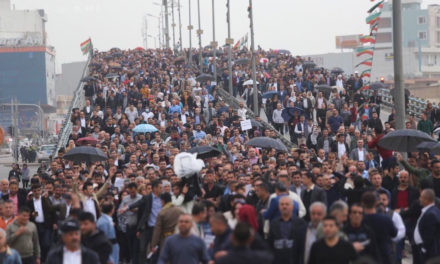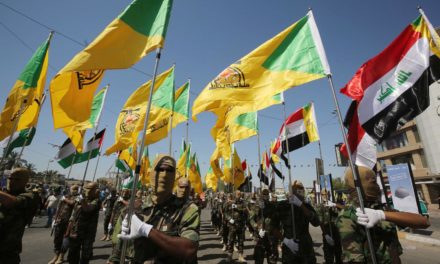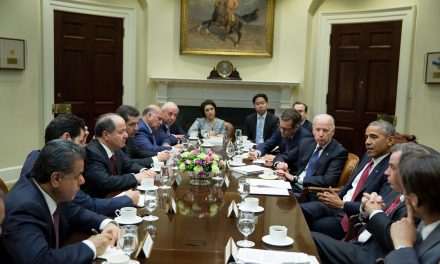What are the characteristics of the next Iraqi government and its formation? Will it be formed under the theme of majority government versus minority opposition? Will the combination of rising tensions in the region following the United States decision to pull out of the JCOP nuclear agreement; the fragile internal political situation in Iraq; the emergence of new political blocks with military wings; and the reluctance of the voters to participate in May’s election have an influence in forming this government? Do these factors call for the formation of a national unity government or a national salvation government, which aspires for stable government that reflects the different aspirations of its people? There is an urgent need for the government to activate unimplemented legislation and put into motion new legislations that require the inclusion of these active forces under one roof.
The political reality created by the availability of arms outside the state control will make it difficult to have a strong political majority government, more so in exchange for a minority that feels marginalized and does not see a constructive role in being in opposition. They are neither eager to be in opposition nor are the governing parties fair and constructive toward opposition parties. We must not forget that the “consensus” government framework that was employed by previous governments has significantly brought us to this dangerous juncture. To save the day, there must be an effective parliamentary opposition to create and consolidate an effective democracy that sets the country on the right track.
Another big problem lies in the attempts of the parties who try to play both roles of government and opposition simultaneously, which creates barriers for the political process to progress and become effective. The parties that wish to lead government must assume the full responsibilities of the government and allow the opposition to serve the country from its opposing camp.
One such proposal to play the game differently this time is to allow the next prime minister with the authority to choose his ministers and other advanced positions (such as commissioners) in the government formation after the winning parties provide him with a list of different names for their preferred candidates for each position. This is to enable the prime minister to choose whom he deems appropriate, and at the same time allows him to choose independent candidates from outside the basket of the political parties as well.
We need to resort to this compromise, because the formation of a complete technocrat government excluding candidates from the winning parties is a fantasy, it also does not provide the necessary political stability. Iraq will need all of its high caliber officials (partisan and independent) to pull in the same direction.
And here comes the question of how will the political blocs and parties who won the election work together to form the next government? Will they work from the basis of strategic alliances viable for a long duration? And will they support the next prime minister wholeheartedly to form an effective and focused government? Or is a threat of a no-confidence vote against the upcoming prime minister from his political governing alliances going to contaminate the new atmosphere? Here, it is essential for the success of the next government to give its prime minister the freedom to allow him to form a top notch ministerial cabinet, so that responsibility and accountability will be clear and specific, not vague nor confused, in which we do not know who is responsible for what.
In spite of the above observations, let us look to the future with optimism. This optimism if founded on multiple positive factors such as the richness of Iraq’s vast natural and human resources; its civilizational depth; its endurance from terrorism; its determination for achieving democracy, away from dictatorship; its ability to stand up to the oppression of Saddam’s regime; the voice of rationality which Najaf has provided, more so its ability to strike a balance and provide a clear direction at critical times; and it is necessary to remember the strength of ethnic and national diversity that we have with our insistence on the goals and visions of high self-confidence. And the ability of our emerging generations to stick to and open up to new technology and their realization that we as Iraqis are determined to be better.
The building of a state begins when we define the nature of the state we want, and choose the appropriate people for this challenge, and rise all together to the level of challenges that will help us reach our goals as a prelude to building a bright and safe future for Iraq. Let us not disappoint our people this time.

Lukman Faily
Lukman Faily served as Iraqi ambassador to Japan and the United States.










